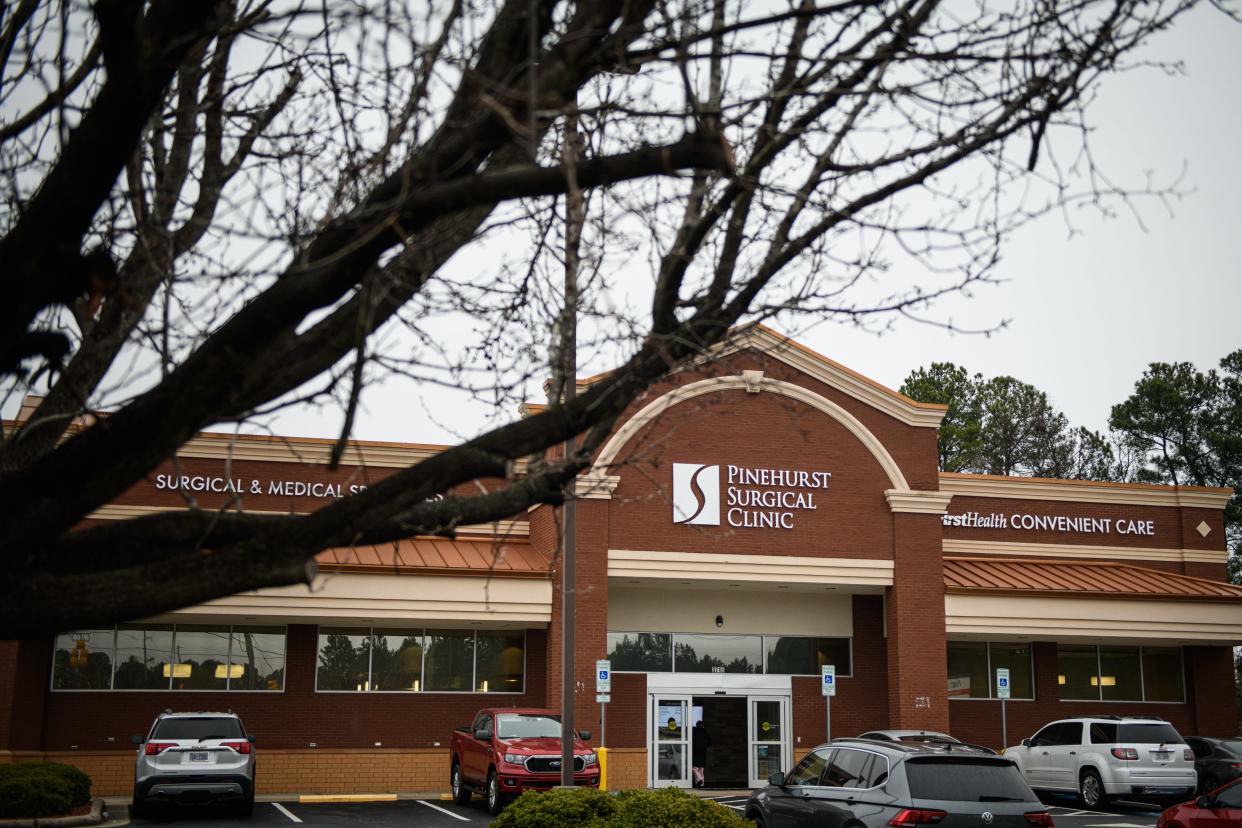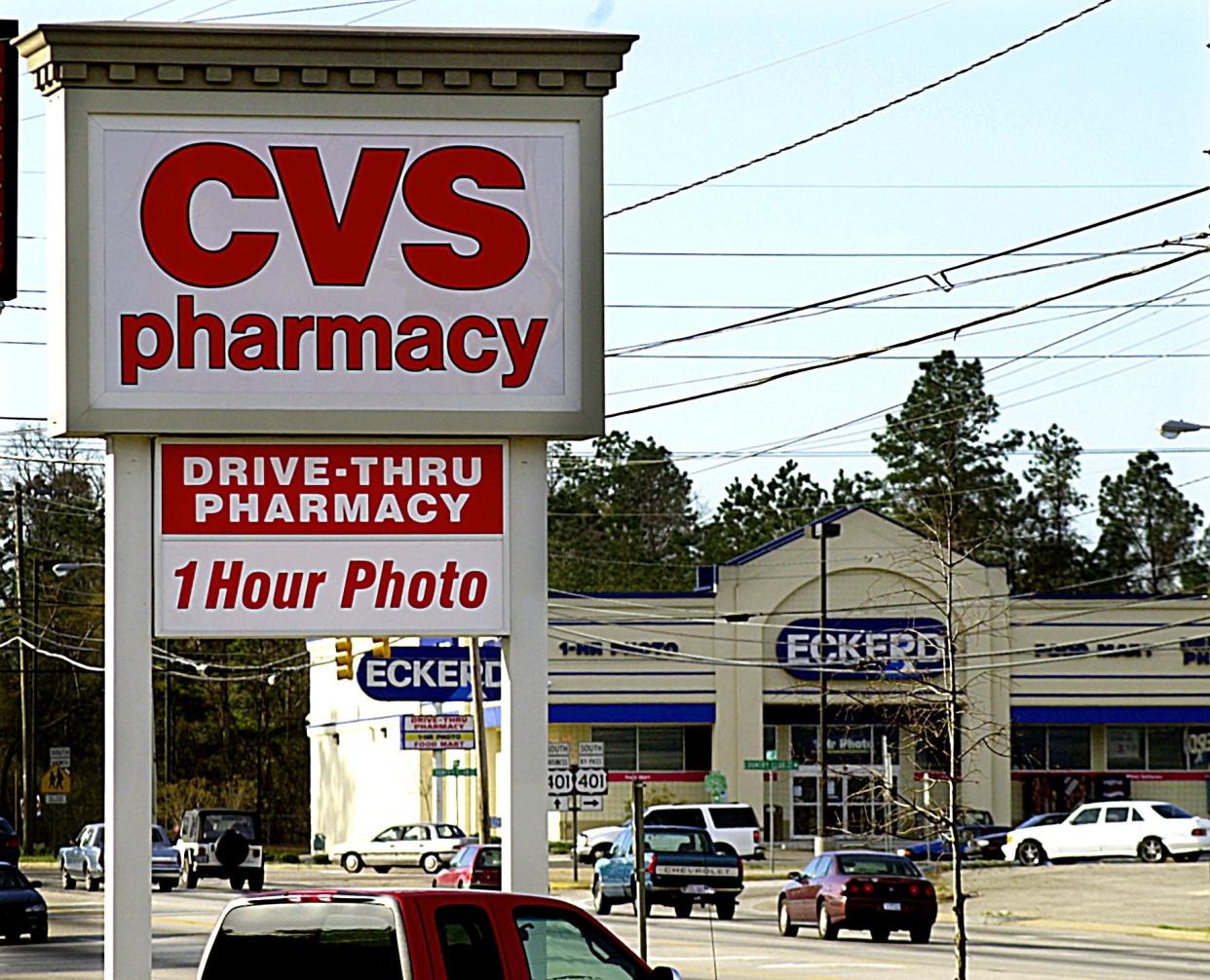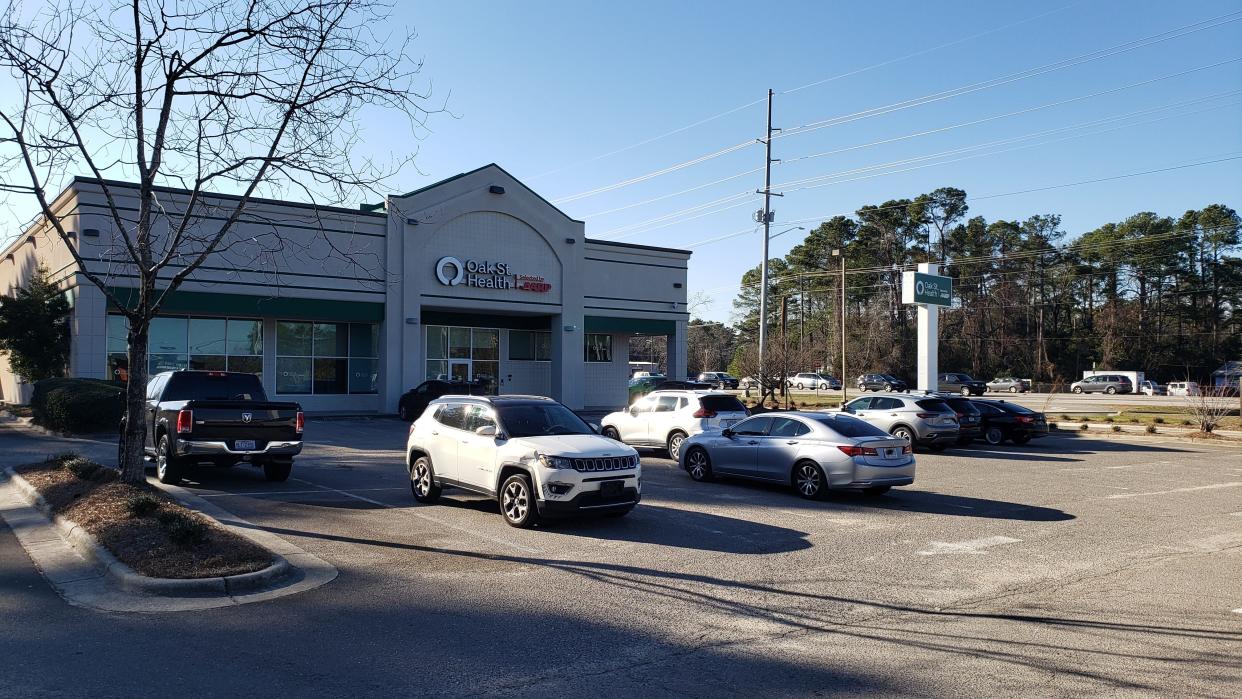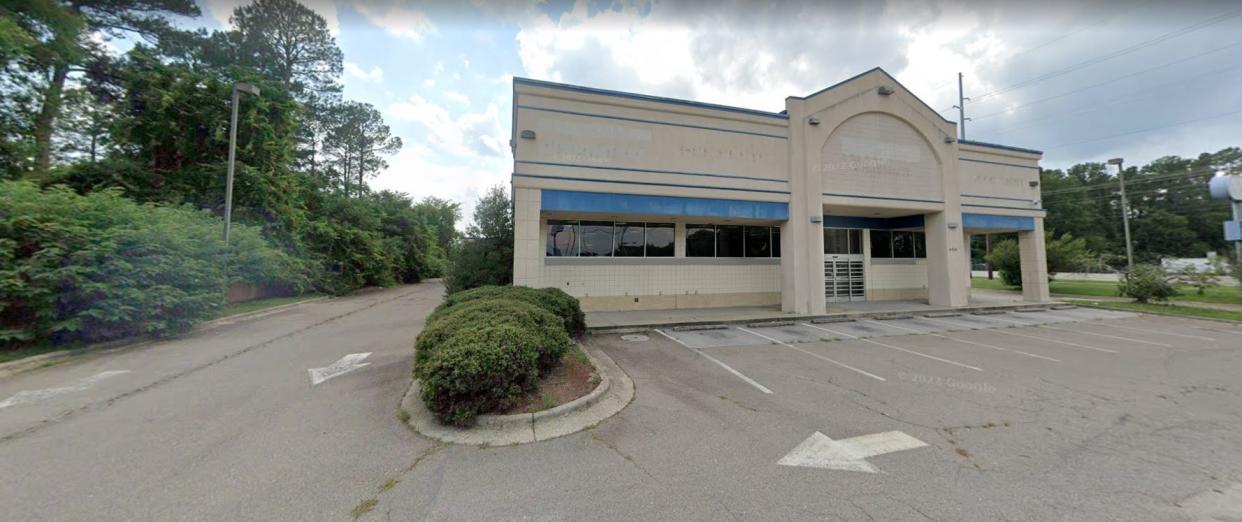Former Fayetteville Rite Aid sites get second act as health clinics. What they offer.
I like to see an old retail building get a new lease on life.
I prefer to see almost any business activity instead of a vacant retail space. Activity beats no activity. A city is growing or it’s dying; there is not a third option.
We can see one such transformation happening in Fayetteville with long-closed pharmacies — mainly former Rite Aid locations — as they turn into health clinics as their next act.
FirstHealth Convenient Care operates at the intersection of Morganton and McPherson Church Roads, in a building that once housed a Rite Aid. The clinic provides treatment for urgent but non-life-threatening illnesses and family medical care needs, said Emily Sloan, a spokesperson for the FirstHealth hospital system headquartered in Moore County.
The clinic is its only Cumberland County location, she said, but it is one of nine clinics the system operates.
“The clinics aim to fill the void between a true emergency and preventative care,” she said.
The convenient care accepts all major insurances and is open from 8 a.m. to 7:30 p.m., seven days a week for walk-ins, Sloan said.
“No appointment is needed,” she added.

Drug store layout makes transition to clinic easier
Years ago, before the location was a Rite-Aid, it was an Eckerd Drug, a once-powerhouse national chain founded in Erie, Pennsylvania, that closed shop for good in 2007, after a 109-year run.
I asked Sloan if FirstHealth found it easier to convert a former pharmacy into a clinic versus another type of space.

“These properties typically have an open layout concept, which makes build-out programming much easier,” she said.
The clinic also offers, according to Sloan, Occupational Health & Wellness; Interventional Pain Medicine; FirstHealth Neurology and FirstHealth Gynecologic Oncology; and surgical specialties offered in partnership with Pinehurst Surgical Clinic, which includes urology, orthopedics and spine and vascular.
She said a staff of 50 to 60 people at the site includes “12 dedicated Convenient Care staff members.”
Oak Street clinics, where Rite Aids used to be
Oak Street Health moved into former Rite Aids at 103 Country Club Drive, at Ramsey Street, in January 2022 and at 906 Bingham Drive in December of last year. Oak Street is a chain of retail clinics that operate in 25 states.
“Our centers are designed to accommodate the services of older adults often need in a primary care facility,” said Maggie Garvey, a spokesperson. “We deliver personalized and preventive care through a model that was created to meet the unique needs of older adults who face chronic illnesses.”
She said Oak Street’s model includes behavioral health care accessible through in-home and telehealth appointments, and a 24/7 patient support line. The clinics accept Medicare beneficiaries with Part B and disability, regardless of age and supplements, Garvey said. This includes regional and national Medicare Advantage insurance plans and traditional Medicare, she said.

“We strategically place our centers in neighborhoods that lack access to healthcare, so we seek to serve the Fayetteville community by providing better healthcare access for older adults,” she said.
Garvey said each new center over time generates 35 to 50 jobs.
“We want to build a relationship with the community and help to break down the barriers preventing older adults from receiving quality care,” she said.

Big bank take little bank
The former pharmacy locations tell a story about changes in the drug store industry, encapsulated by the urban slang “big bank take little bank.”
If you can visualize that cartoon with a big fish about to swallow a smaller fish, while an even bigger fish is waiting to swallow the first big fish: That’s what we’re talking about.
But there is also a story of evolving customer preferences in how health care is delivered.
In 2006, Rite Aid bought the Eckerd chain in a deal valued at $3.4 billion.
In 2018, Walgreens bought 1,932 Rite Aid locations and three distribution centers for $4.4 billion. Albertson’s grocery store bought the rest of the stores, some 2,500 locations.
Some of the Fayetteville Rite Aid locations became Walgreens; others closed.
Rite Aid has since pulled up all stakes in North Carolina; it still operates in 16 states, and is the third largest retail drugstore chain after Walgreen's and CVS Health.
But in December, the chain entered into bankruptcy mediation in what may be the final act for the company founded in Scranton, Pennsylvania, in 1962.
The chain is "on track to close hundreds of stores nationwide," a Philadelphia reporter wrote Tuesday in a story about the economic impact on her city, which was expecting to lose many more stores on top of previous closings.
Retail clinics and pharmacies: The future of primary care?
Meanwhile, studies show that customers are becoming more comfortable receiving health care at pharmacies. Fifty-eight percent of respondents said they received non-emergency medical care at local pharmacies because of the convenience, according to a study last year by Wolters Kluwer, an information services company that includes healthcare among its specialties.
On that convenience: 90% of U.S. residents live within 5 miles of a pharmacy, according to the Centers for Disease Control and Prevention.
“Primary care decentralization is continuing — the traditional one doctor one patient, single point of coordination is vanishing, and this is especially evident in younger generations,” said Dr. Peter Bonis, chief medical officer for the firm, in Becker’s Hospital Review.
The shift from pharmacies to clinics seems natural, especially since 61% of people believe that pharmacies and retail clinics will take over most primary care services from doctor’s offices, WoltersKluwer reports.
CVS tried to get in front of the trend starting in 2021 when it first started making a major push into opening "minute clinics" at locations across the country. In 2023 it bought the Oak Street Health chain — for $10 billion.
I guess however people get their health care, it is still a case of big bank take little bank.
Myron B. Pitts can be reached at mpitts@fayobserver.com or 910-486-3559.

This article originally appeared on The Fayetteville Observer: Closed Fayetteville Rite Aid buildings get new life as health clinics
